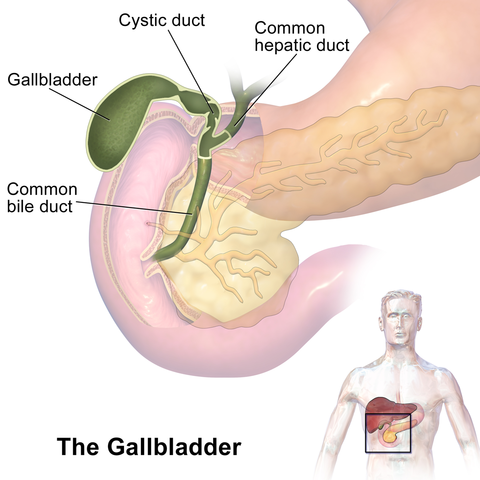
Alcohol’s Impact on Gallbladder Health
The relationship between alcohol and gallbladder health is nuanced and individualized. While alcohol does not directly cause gallbladder gallstones, it can affect gallbladder health by exacerbating existing conditions and symptoms. For those with gallstones or gallbladder disease, moderation is crucial, and in some cases, avoiding alcohol may be the best option. After gallbladder removal, some people may continue to enjoy alcohol in moderation, while others may experience discomfort. [1]
Table of Contents:
The gallbladder, a small but vital organ, plays a crucial role in the digestive process, primarily in the storage and release of bile. Bile aids in the digestion of fats, and the gallbladder is instrumental in regulating this process. However, gallbladder health can be compromised by various factors, including diet, lifestyle choices, and potentially alcohol consumption. For individuals dealing with gallstones or gallbladder pain, the question often arises: How does alcohol affect the gallbladder?
This article explores the complex relationship between alcohol and gallbladder health, examining potential risks, symptoms, and management strategies.
Overview of Gallbladder Function
The gallbladder is a small, pear-shaped organ located beneath the liver. It acts as a reservoir, storing bile produced by the liver until it’s needed for digestion. Bile emulsifies fats, aiding their breakdown in the small intestine, which is essential for proper nutrient absorption. When we eat, particularly fatty foods, the gallbladder releases bile into the digestive tract to support this process. However, gallstones and gallbladder disease can disrupt its function, potentially leading to painful symptoms.
General Effects of Alcohol on the Body
Alcohol affects nearly every organ in the body. It is primarily metabolized by the liver, where it undergoes chemical changes that allow for its eventual excretion. However, alcohol is also known to have several systemic effects, including inflammation and strain on the digestive system. While moderate alcohol consumption may have some health benefits, heavy or prolonged use can cause liver and digestive issues. These systemic effects set the stage for understanding how alcohol may specifically impact the gallbladder.
The Impact of Alcohol on the Gallbladder
Direct Effects on Gallbladder Health
While alcohol does not directly interact with the gallbladder as it does with the liver, its influence on the digestive system can impact gallbladder health. For those with pre-existing gallbladder conditions, such as gallstones or inflammation, alcohol may exacerbate symptoms like pain, bloating, or nausea. This raises questions like Does alcohol make gallbladder pain worse? and Is alcohol bad for the gallbladder? While moderate consumption might be manageable, heavy drinking can strain the liver and affect bile production, which could lead to discomfort in those with gallbladder issues. [2]

Alcohol Detox
Alcohol detox is the first and most important step of someone's addiction recovery journey. Our custom, medically-managed treatment program can help you overcome addiction and equip you with the tools you need to take back control of your life for good.
Book NowAlcohol and Gallstone Formation
The relationship between alcohol and gallstones is complex. Gallstones, which are hardened deposits of digestive fluid, form when there’s an imbalance in the substances that make up bile, such as cholesterol or bilirubin. While research does not conclusively show that alcohol causes gallstones, certain factors linked to alcohol consumption, such as dehydration, may contribute to gallstone formation. [3] Moreover, alcohol-induced liver damage can impact bile composition, potentially increasing the risk of gallstones.
For individuals with gallstones, drinking can be a double-edged sword. While some studies suggest that moderate alcohol consumption may have a protective effect against gallstones, [4] this is not true for everyone. Questions like Can alcohol cause gallstones? and Can I drink wine with gallstones? depend heavily on individual health, moderation, and the presence of other risk factors.
Alcohol’s Role in Gallbladder Disease
Chronic alcohol consumption can lead to conditions that indirectly impact the gallbladder. For instance, alcohol abuse can cause liver cirrhosis, which disrupts bile production and flow. This disruption can lead to the formation of bile sludge or gallstones. In cases where gallbladder disease is linked to liver issues, abstaining from alcohol may be advisable to prevent further complications.
Complications and Considerations
The complications from combining alcohol with gallbladder issues vary based on the individual. Some of the symptoms that may indicate a worsening gallbladder condition due to alcohol include:
- Intense abdominal pain, particularly after eating fatty foods or drinking
- Nausea or vomiting, especially if alcohol was recently consumed
- Bloating and indigestion
- Fever or chills, which may indicate an infection
Recognizing these symptoms and understanding when to seek medical attention is vital. If pain persists or worsens with alcohol consumption, it may be wise to consult a healthcare provider for further evaluation.
Managing Gallbladder Health with Alcohol Consumption
Can You Drink Alcohol with Gallstones?
For those with gallstones, drinking alcohol largely depends on individual circumstances and doctor recommendations. Generally, individuals with gallstones are advised to monitor their alcohol intake carefully. Small amounts may be tolerated by some people, but excessive drinking can lead to severe discomfort or even gallbladder attacks.
Dietary and Lifestyle Tips for Gallbladder Health
A gallbladder-friendly diet is one of the best preventive measures for those concerned about gallstones or gallbladder disease. Key dietary guidelines include:
- Limit fats and oils: Avoid foods high in saturated fats, as they can strain the gallbladder.
- Increase fiber intake: Fiber-rich foods can promote healthy digestion and prevent bile from becoming overly concentrated.
- Stay hydrated: Drinking plenty of water helps keep bile from becoming too thick or forming stones.
- Limit alcohol: Moderation is key. Heavy drinking should be avoided, especially for those with gallbladder issues.

Treatment Options for Gallbladder Disorders
When gallbladder issues become chronic or unmanageable, medical intervention may be necessary. Treatment options range from medication to surgery. The most common surgical procedure is a cholecystectomy, or gallbladder removal, which can relieve gallstone-related pain or recurring gallbladder inflammation. For individuals who undergo this procedure, the question arises: Can you drink alcohol after gallbladder removal?
After Gallbladder Removal: Can You Drink Alcohol?
Post-surgery, the digestive system undergoes adjustments as bile is released directly from the liver into the small intestine, bypassing the gallbladder. This change can lead to digestive discomfort, especially when consuming fatty foods or alcohol. For individuals without a gallbladder, moderate alcohol consumption may be tolerated once the body has adjusted. However, it’s generally advised to avoid alcohol for several weeks after surgery to allow for a smooth recovery.
In some cases, even small amounts of alcohol may lead to digestive discomfort, especially if consumed alongside fatty or spicy foods.
Conclusion
Ultimately, maintaining gallbladder health while enjoying alcohol is about balance and awareness. For those with existing gallbladder issues or after gallbladder removal, it is advisable to discuss alcohol consumption with a healthcare provider. By understanding personal health limitations and practicing moderation, individuals can make informed choices about their alcohol intake and gallbladder health.
Alcohol Detox Program
If you or someone you love are struggling with alcohol use, getting professional help is essential for safe and successful detox and recovery.
Our medically-managed detox and recovery program is tailored to your needs to help you overcome withdrawal symptoms and achieve lasting sobriety. One of our medical professionals will bring your appointments directly to your home , offering unparalleled privacy and discretion.
Book an appointment by clicking the button below.
Book Now

